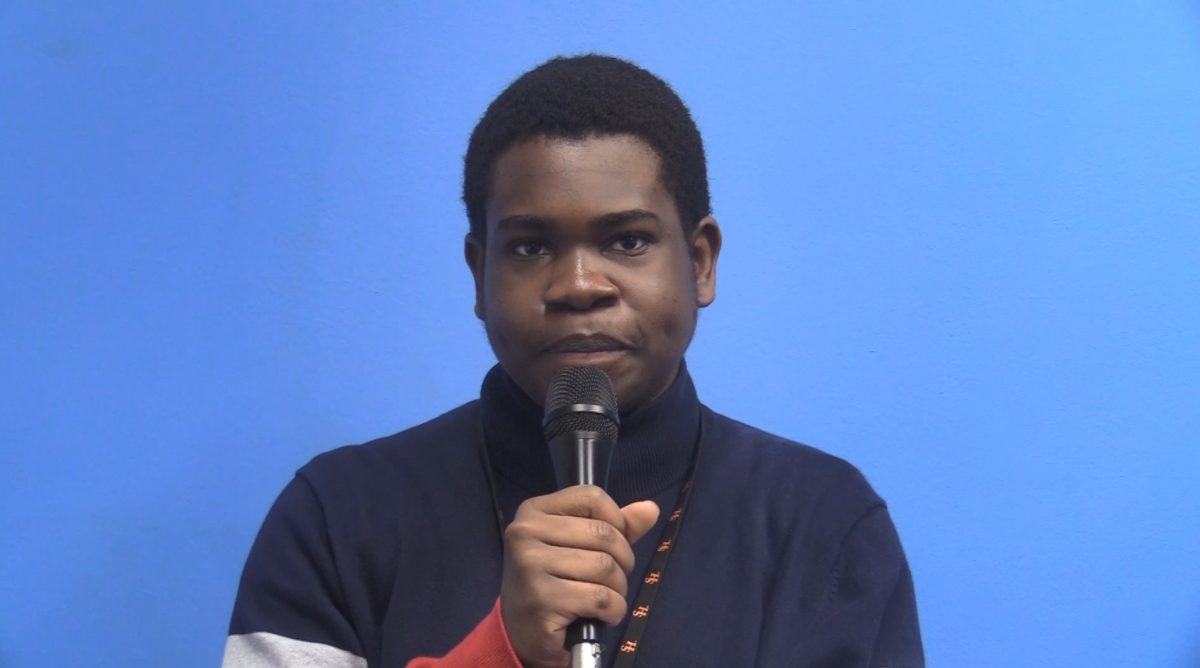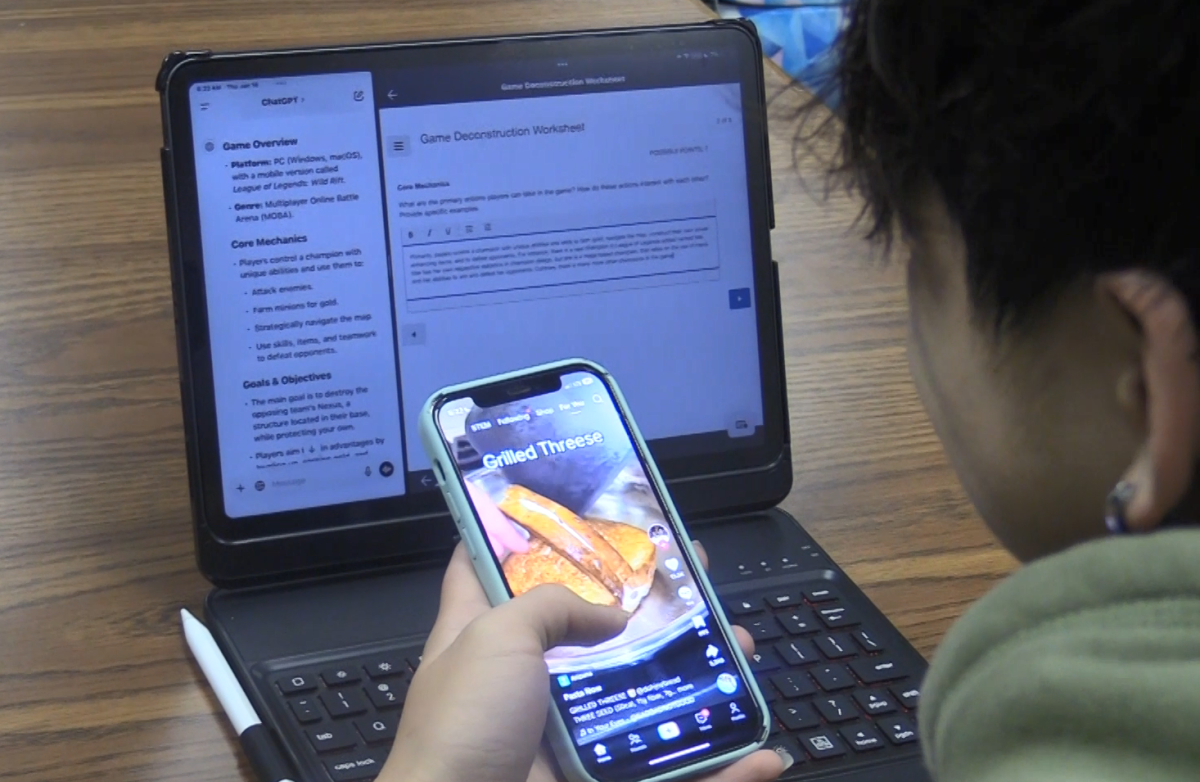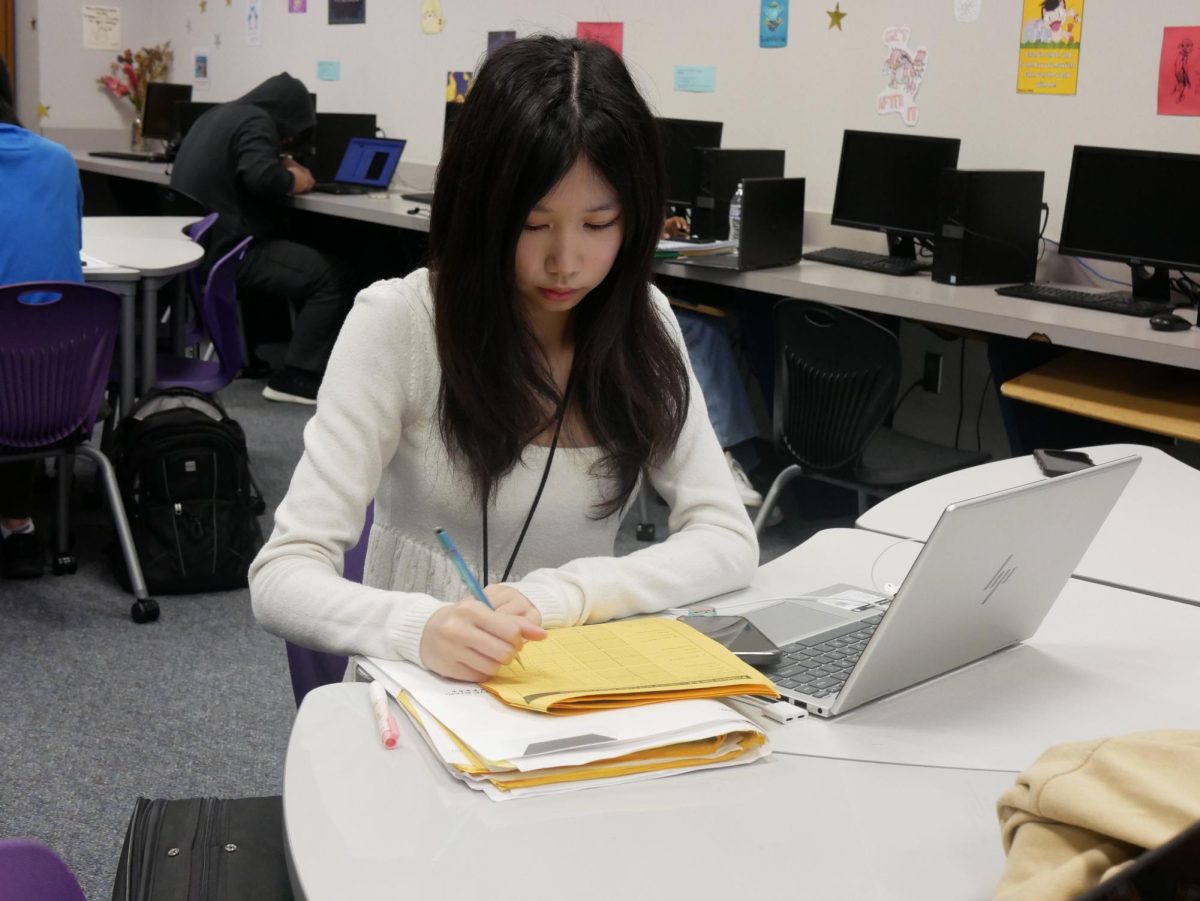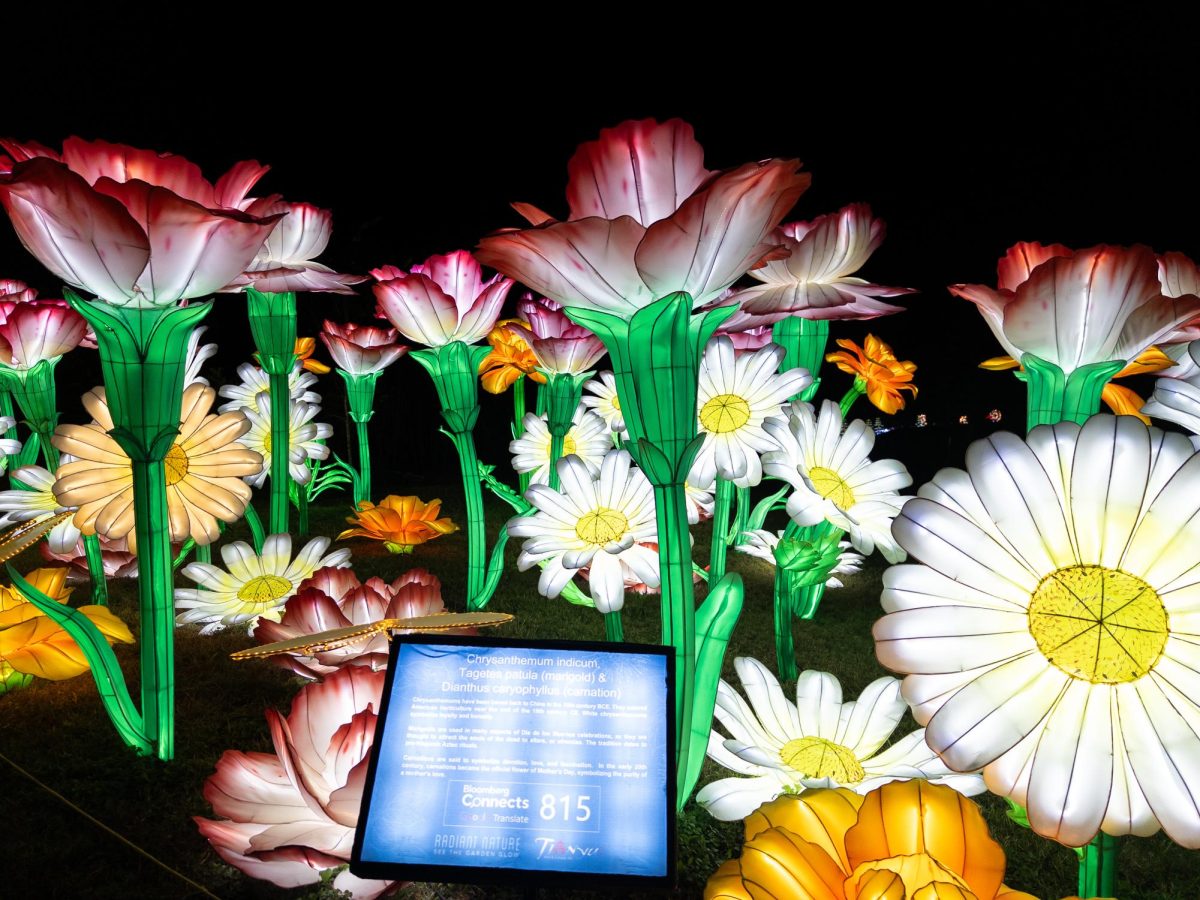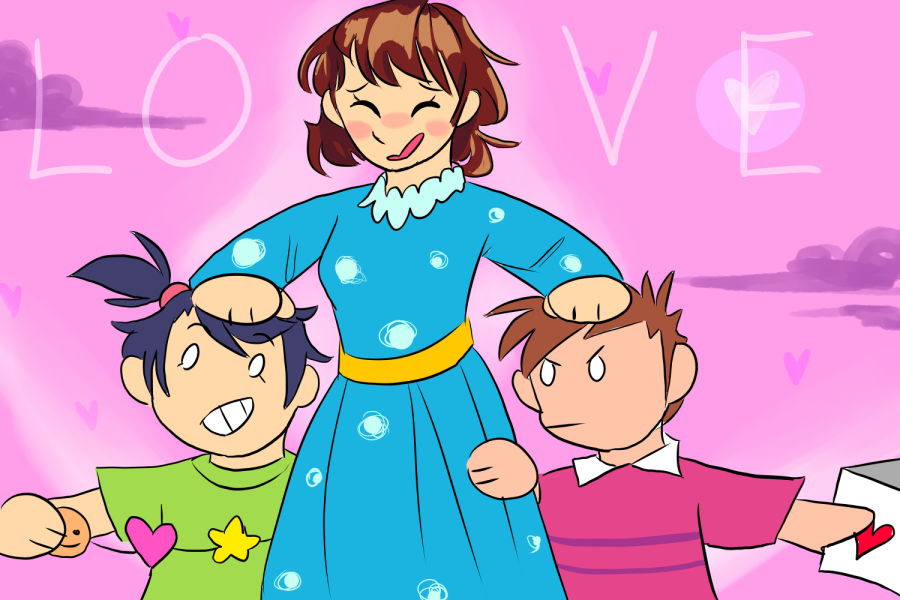
Senior Dennis C. joins other students in the Math Center, enjoying a lunch of pizza. They talk of school and of their day. Then Principal Greg Freeman and Assistant Principal Kimberly Mathis begin the conversation that will require students and administrators to work together.
This is the usual routine of the monthly Principal’s Luncheon, a feature of Kerr that Dennis finds quite important.
“[The luncheon] allows me to actually voice my opinions, and know that they are being heard,” Dennis said. “It just serves as another channel by which we can communicate with someone who can actually make a difference in our policy.”
To Dennis, who is National Honor Society treasurer, the luncheon is “a place where Freeman and Mathis can get a good look at how the school is doing,” he said. “It’s easy for them to see how things are doing, but they would like to get the student’s perspective on things…like being on the outside looking in; they want to know how our experience is.”
“Apart from being able to gauge how things are going at Kerr, it allows for the leaders of the school to converge and talk of things that they may or may not usually be able to with their regular group of friends.”
Class of 2014 president Jim L. also feels that communication is a great way for students to ignite change in their school.
“If we, the student body, bring up anything wrong with the school, they will do everything in their power to try and change it and make it better for all of us,” Jim said.
The Principal’s Luncheon was started in 2007 by former principal Raymond Lowery. And even though it was established before Freeman’s tenure, he chooses to continue.
“It is an excellent opportunity for the leadership teams of the various clubs and organizations on campus to give us input, ask questions, and generally talk about what is going on at Kerr… both good and bad,” Freeman said. “If Mrs. Mathis and I have an idea, question, or concern, it is great to hear student’s point of views and weigh those against the viewpoints of the adults on campus. Hearing both sides of an issue most of the time makes decisions easier.”
“It allows the leaders of Kerr have a say in what decisions are made,” Mathis said. “Mr. Freeman and I want to involve the student body in as many decisions as we can.”
The luncheons do occasionally address major issues of the school, but Jim tells that sometimes the subjects are more common and not very serious, and even positive.
“We started talking about the good things and what we liked about the school,” Jim said. “We discussed everyday things, [and] until we get to discuss the bad things, everything will stay the same at the moment.”
The luncheon is not only for students to voice their concerns, but it also allows for administrators to display the reasons behind some of the policies.
“It also gives us a chance to explain why we are doing something or why something has to be done a certain way… in order to help them understand our reasoning,” Freeman said. “It’s an open forum for responses.”
However open the discussion may be, though, Speech and Debate President Denny D. feels that student opinions expressed at the luncheon are not very effective in changing the way things are done.
“I don’t think it’s very effective,” senior Denny said. “Sometimes teachers just nod their heads, but nothing actually changes. The major stuff [almost never changes], and little stuff [changes only] every once in a while.”
Jim also reflects on how the luncheon gives students a say-so on how the school is run.
“Everybody… [tells] them where their destinations will be in the future,” he said.
Sometimes the subjects Freeman and Mathis bring up can lead to a change in school policy. One of the best examples of how the open communication between staff and students can lead to changes is the removal of the Phase System, which was intended to reward students with greater freedom as they got older and demonstrated responsibility.
However, some teachers felt that the system had no benefit to students whatsoever.
“During our first year, we had some concerns with the enforcement and benefit of the system,” Freeman said. “We asked the students two years ago what they thought about it and the responses were overwhelmingly against the system because of it was seen as unfair, not enforced, and generally not a motivator. With that information and feedback from staff, we did away with the Phase System.”
Denny and Dennis are displeased with the removal of the system, however.
“I don’t like it,” Denny said. “Yeah, now that it’s gone it creates balance between grades, but now there’s not as much motivation for seniors.”
When the Phase System was still practiced, Dennis found that he actually loved it.
“I thought it was a great thing because it gave so many people so many privileges, and now that it’s not in practice, I kind of miss it,” he said.

